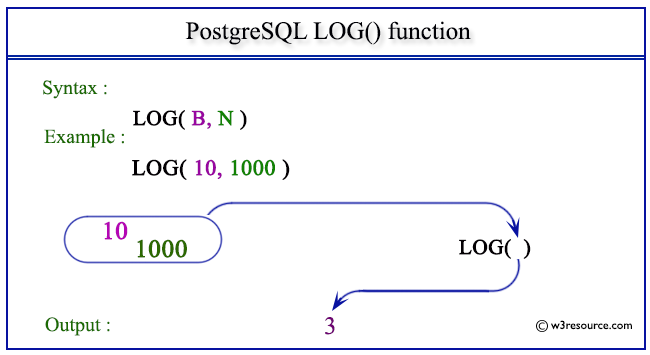PostgreSQL LOG() function
LOG() function
The PostgreSQL log() function is used to return the base 10 logarithm of a given number or logarithm of a number for a particular base, as specified in the argument.
Uses of LOG() Function
- Base 10 Logarithms: To calculate the base 10 logarithm of a number.
- Custom Base Logarithms: To compute logarithms for any specified base.
- Mathematical Calculations: Useful in various mathematical formulas involving logarithms.
- Scientific and Engineering Applications: Employed in scientific and engineering computations that require logarithmic functions.
- Data Analysis: To transform data using logarithmic scales in statistical and data analysis tasks.
Syntax:
log()
PostgreSQL Version: 9.3
Pictorial presentation of PostgreSQL LOG() function

Example 1: PostgreSQL LOG() function
Code:
SELECT LOG(200.0) AS "Base 10 Logarithm";
Sample Output:
Base 10 Logarithm -------------------- 2.3010299956639812 (1 row)
Example 2: PostgreSQL LOG() function
Code:
SELECT LOG(2.0,16) AS "Base 2 Logarithm";
Sample Output:
Base 2 Logarithm -------------------- 4.0000000000000000 (1 row)
Previous: LN function
Next: MOD function
